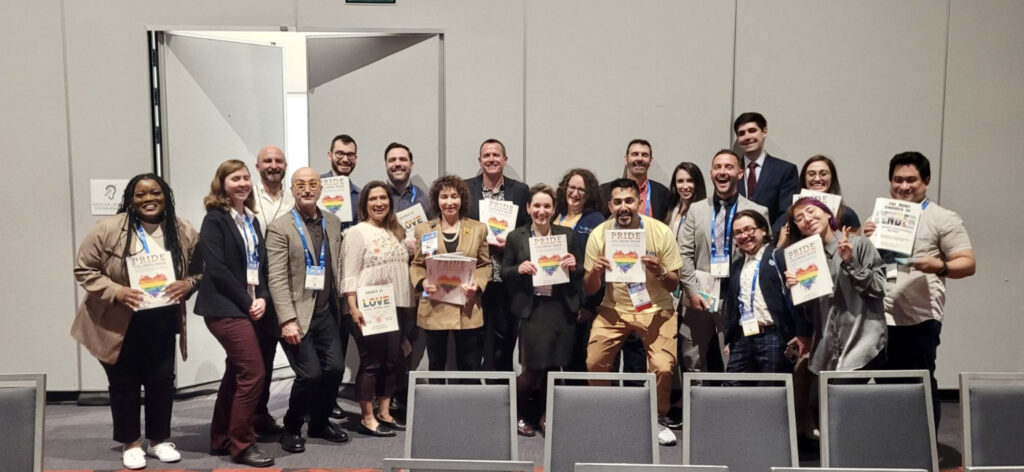
Queer in the Cornfields: How Psychiatrists Can Help Rural Queer Youth Navigate the Coming Out Process
Drs. Holt, Shapiro, and Waickman presented their session at the annual meeting of the APA in May 2023. Attendees included mental health professionals from across the country and world.
Abstract: Queer people are historically at higher risk for mental health disparities due to many factors. The coming out process can be a positive factor to help mitigate some of these adverse mental health outcomes. The question arises whether queer individuals from rural areas have less access to essential information and support needed to facilitate the healthy integration of their identity. The original research for this session explored constituent aspects of information and support that influenced the coming-out process for rural college and medical students attending school in the central Midwest. An anonymous online survey was administered, with 45 completed surveys collected. Results showed small town participants’ outness and coming out experiences were more negatively influenced by a lack of support and negative religious experiences. These adverse events led to greater levels of remaining closeted, delayed self-acknowledgment or acceptance, and internalized homophobia or transphobia. Being from a hometown greater than 50,000 population was protective against some of these negative influences. This session will be an interactive and collaborative learning opportunity for students, trainees, college psychiatrists, and other professionals with an interest in improving the mental health of their sexual minority college population. We will examine how geogr aphy can influence the coming out process of rural students, and collaborate to develop innovative ways to provide the unique support needed for queer students from rural geographies. One goal of the session is to then motivate participants to incorporate this information and support into the college, residency training, and community settings.
Written audience comments included the following:
This was excellent and a very helpful talk. Thank you so much. I really enjoyed the scripts that were discussed for making our patients feel more comfortable knowing their psychiatrist is a person who is safe to come out to. – California
Great presentation. I can have an impact on finding support and resources for my patients. – West Virginia
I learned about the stages of coming out and how to help patients who are at each stage. – Hawaii
I learned opportunities and resources for coming coming out. Use GSA as a form of support. – Phillipines
I learned there is research being done to best support queer rural youth. Very heartening. Take away: Thinking about safety planning. – Massachusetts
I learned LGBTQ patients from rural communities are more likely to have barriers to coming out than their peers from urban areas. This can lead to poorer mental health outcomes. I learned about LGBTQ resources in my area and the trevor project. – California
I was happy to learn more about the available resources to psychiatrists and others. It was also nice to see how those in the APA are working to address these concerns, especially as someone who came out and is from a small rural town. – Ohio
I learned how to open a conversation about coming out. And to know your resources. – New York
I learned data on youth and rural LGBTQ issues. Also learned about importance of support groups and provider education. Try to emphasize acceptance. – Kentucky
Learned different resources to provide LGBTQ youth with parents who are not supportive. – Texas
I learned it’s clear that the desire to make positive change in society regarding the lives and attitudes towards LGBTQIA+ youth is present but we need tons of help from legislative and religious figures. This is a pressing issue that needs to come to the forefront . – Ohio